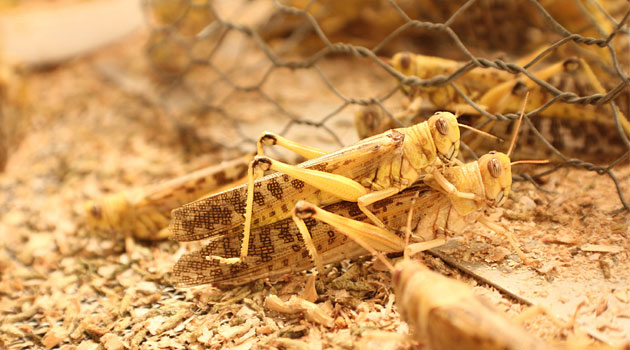NAIROBI, Kenya Dec 31 – Northern Kenya leaders have warned of a looming humanitarian crisis, if measures are not taken to stop the invasion of Locusts on vegetation in the region.
Despite earlier warnings by the U.N. Food and Agriculture Organization (FAO) they said the country and counties were caught off-guard, worsening what is already a precarious situation.
Led by Eldas MP Adan Keynan, the leaders, called on the government to move swiftly to deal with the swarms in Mandera and Wajir counties.
“It is apparent that there is total lack of national and county preparedness on this. We have had drought, we have El-Niño effects, right now we have Locusts the next thing we will be hearing is drought, famine, and hunger,” Keynan said, “avail resources to combat this phenomenon if this is not done then the government will run around in order to feed the residents of that area.”
According to FAO, the locusts have damaged about 70,000 hectares of farmland in Somalia and neighboring eastern Ethiopia.
Mandera West MP Maalim Mahamud asked the relevant government agencies to move with speed and control the situation that threatens food crisis in the country.
“You have to protect yourself when you are invaded. This time not by a foreign army but locusts which are actually worse than foreign armies where you know how to defend yourself. The defense can only be done by aerial spraying and confronting it as a national disaster,” he said, ” If we don’t deal with it all the gains we have and the livelihood of the people will be destroyed.”
The desert locust is the world’s most dangerous migratory pest with a voracious appetite unmatched in the insect world.
The insects reproduce, concentrate and then form swarms that can move up to 150 kilometers per day in search of food.
Tens of thousands of hectares of farmland is being destroyed as desert locusts swarm over neighboring Somalia, in the worst invasion in 25 years, in what could result in potentially adverse impacts on the agricultural yields and local economies affecting food security and livelihoods of the populations.










































